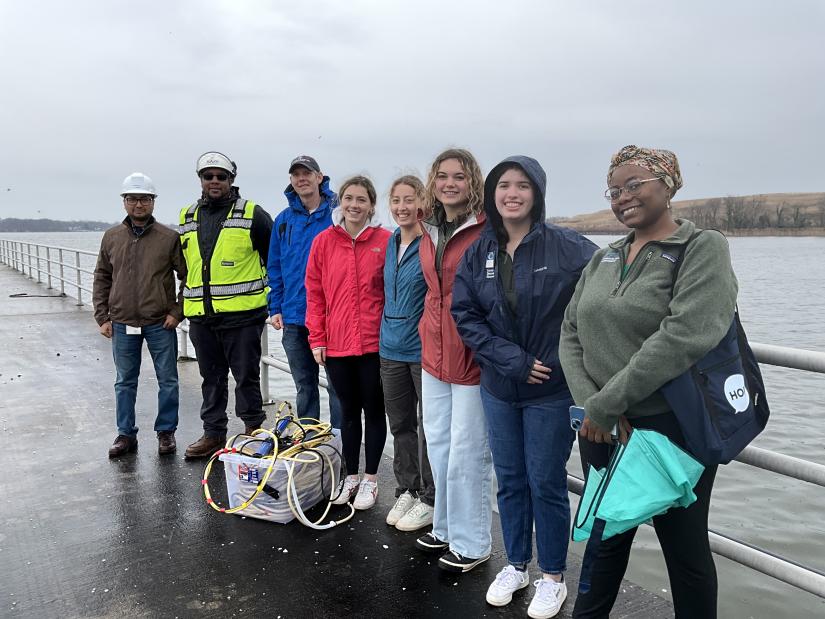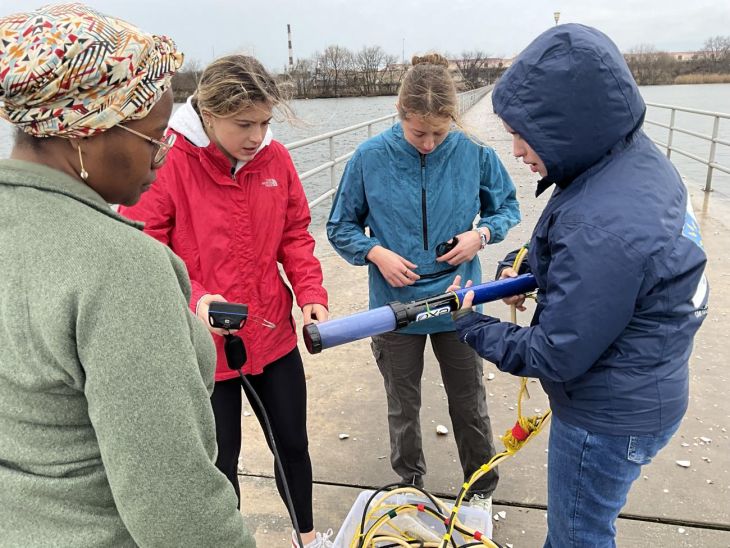A team of Johns Hopkins University seniors studying environmental health and engineering worked with the City of Baltimore to develop a nature-based solution to reduce nutrient pollution discharged into the Patapsco and Back rivers from wastewater treatment plants on each waterway's banks.

Design Day 2024
Check out the annual showcase for the creative problem-solving inventions by Hopkins engineering students on Wednesday, May 1, from 8:30 a.m. to 4:30 p.m. EDT on the Homewood campus
Their solution: Installing mussel beds in Back River and oyster beds in the Patapsco. They'll present their senior design project at the Whiting School of Engineering's annual Design Day on May 1.
Bivalve reefs keep rivers healthy, but overfishing and pollution have depleted them. Oysters and mussels act as natural water filters by removing high concentrations of nutrients that cause algae to overgrow, degrading water quality and robbing other aquatic life of vital oxygen.
"As the oysters and mussels grow, they take up nitrogen and phosphorus and hold them in their shells and their tissue," said team member Melina Krawchick. "It's 50-50 between growth and biodeposits (poop)."
The oysters and mussels will start as spat—baby shellfish—grown in cages in the waters near the wastewater treatment plants. Once they're grown, the plan calls for the oysters to be moved to an existing reef off Fort Carroll. The mussels will be moved to a reef on the Back River.
Melina Krawchick
Senior, Whiting School of Engineering
"Oyster and mussel populations have significantly declined in the Chesapeake Bay, so this will help restore historical reefs and the native populations."
"We're nursing them in cages initially to increase survival and transferring them to reefs downstream once they are mature. It's a continuous cycle to continue increasing the amount of nutrients sequestered and ensuring their longevity," said Krawchick. "Oyster and mussel populations have significantly declined in the Chesapeake Bay, so this will help restore historical reefs and the native populations."
The team had several decisions to make, including which native species of bivalve to use and in which location. Mussels trumped oysters at Back River because of the lower salinity of the water there. Mussels do better in water with lower salinity. Oysters prefer higher salinity water.
Krawchick said she enjoyed the experience of working on a team to solve a complex problem.
"It's been cool seeing the start to end of a project, including cost, alternative analysis, and scheduling," said Krawchick. "Also, I'm not a water person. It's cool doing a project that is focused on water."
Krawchick will be working at Clean Air Engineering as an environmental engineer after graduation.
The team will provide their recommendations to the Department of Public Works for consideration once the project is finalized.
The scale of the project meant that the team had to divide up the work, so everyone was not involved in every aspect, something new for team member Anayeli Garcia Villa.
"This has been very different to the other team experiences because of the scope of the work. It has taught me to put my trust in my teammates, and be responsible about doing my own part," she said.
Team members are Krawchick, Garcia Villa, Ciara Darden, Maria Vabson, and Mikayla Bechtel.
For more Design Day stories, visit the Whiting School's newsroom.
















